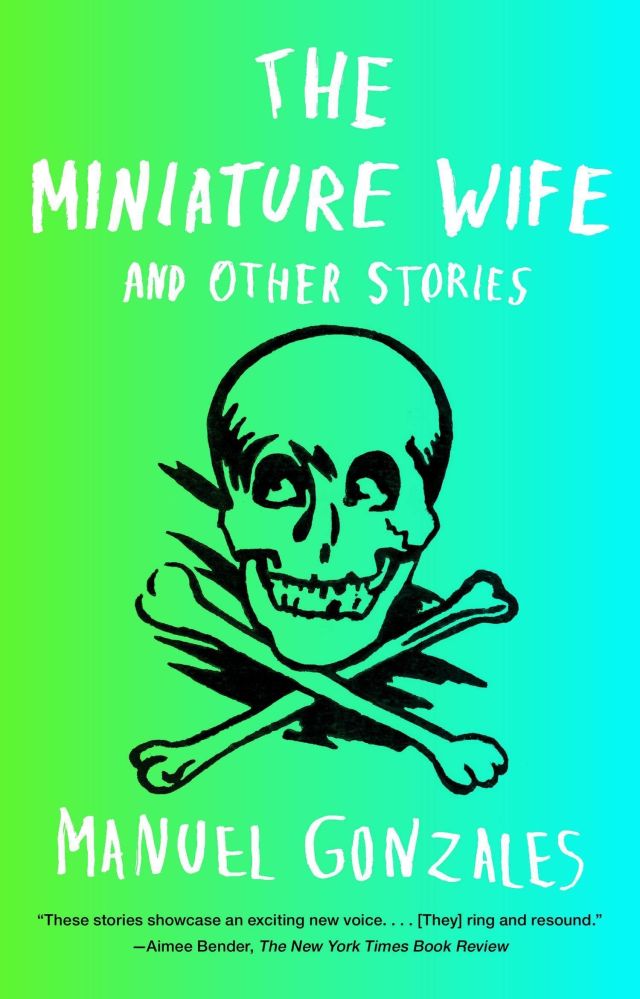What to Read, Watch, and Listen to This Week: Aug 5

Image: Courtesy Netflix
There’s a lot going on right now. Maybe you’re protesting, maybe you’re donating, maybe you’re keeping tabs on the way your representatives are responding to the present moment. Keep doing that!
Our lives are not one thing, though, and you’re also probably looking to escape, however briefly, into a show or a book or an album that might help you shut out the world or understand it a little better. To get the wheels turning, here’s the stuff filling our queues at Portland Monthly this week, from Shel Silverstein to Supermarket Sweep.
MasterChef Junior
The Miniature Wife

What I love about Manuel Gonzales’s 2014 debut short story collection is its uncanny subversion of the mundane. Underneath every seemingly straightforward, everyday backdrop is some fantastic phenomenon, exposing characters to their flaws, desires, and deepest fears. A man sits aboard a plane—that’s been circling the city for 20 years. A woman wakes to the sounds of morning—only to discover the noise has taken on a violent physical form. A couple finds a new home—full of stray animals. A scientist loves his work, his home life, and his wife—and one day, he accidentally shrinks her down to the height of a coffee mug.
The stories in The Miniature Wife & Other Stories are funny, tragic, bizarre, and exciting. We’re delighted by their imagination, shocked by their strangeness, and moved by their humanity. —Gabriel Granillo, digital editor
Supermarket Sweep
Apparently the rest of the world was already briefed on this one, but if you, like me, were not alive when ’90s game show classic Supermarket Sweep premiered and were busy mainlining Disney Channel original content during its syndication heyday, let me introduce you to the concept. People with names like Doreen and Chuck are plucked from a studio audience while holding conspicuous name brand products. Invariably, they are dressed like actors in a Tim & Eric sketch—the most plaid you have ever seen. David Ruprecht, the host, who is openly bad at his job, stumbles through weird small talk with everybody and bravely refuses to crack even one single joke. Teams of two play ludicrous mini-challenges like "What Costs More, These Peanuts Or This Shampoo?" and then Ruprecht shills for an insane ’90s product like, for example, a kitchen knife that launches Ritz crackers (real).
All of this leads to an impossibly athletic, deeply surreal climax: The Big Sweep. One representative from every team sprints through a fake supermarket built on a studio backlot, filling up their carts with the most expensive merchandise they can find. The camera crew chases them. An announcer who is not Ruprecht clocks in, narrating each team’s every move like it is the World Cup: Brenda from USC breaks for the diapers, but NOT before Cindy Sue makes a killing with the jumbo jars of mayonnaise! Three episodes in and you’ll be forever plagued by images of jumpsuit-clad hopefuls burning rubber through an artificial meat aisle, slinging massive hams as though it will be their last action on earth.
Reader, I cannot tell you what this show means to me. The dayglo decay in every frame; the self-parodic vaporwave transition music; the sounds of brand tie-ins gasping for air. It is why there’s TV. Art that knows it’s art has absolutely nothing on the perverse aesthetic pleasures of Supermarket Sweep, which is apparently getting revived sometime this year with Leslie Jones behind the mic. In the meantime, an assortment of OG episodes hit Netflix recently, which thrust the show back into the cultural spotlight. I watch it every day. —Conner Reed, arts & culture editor





